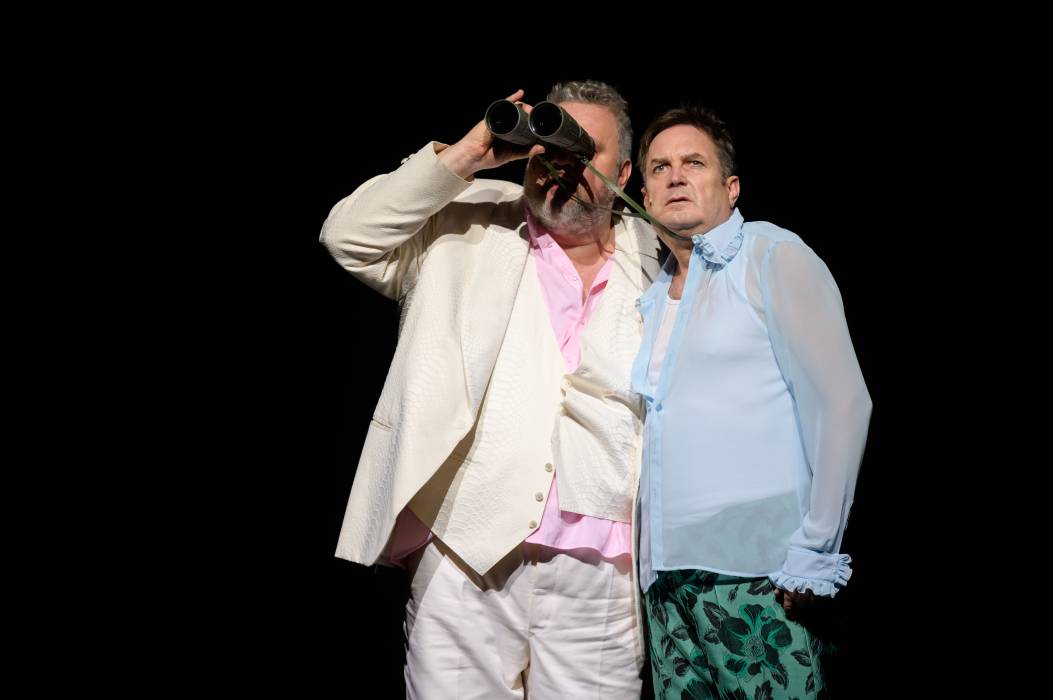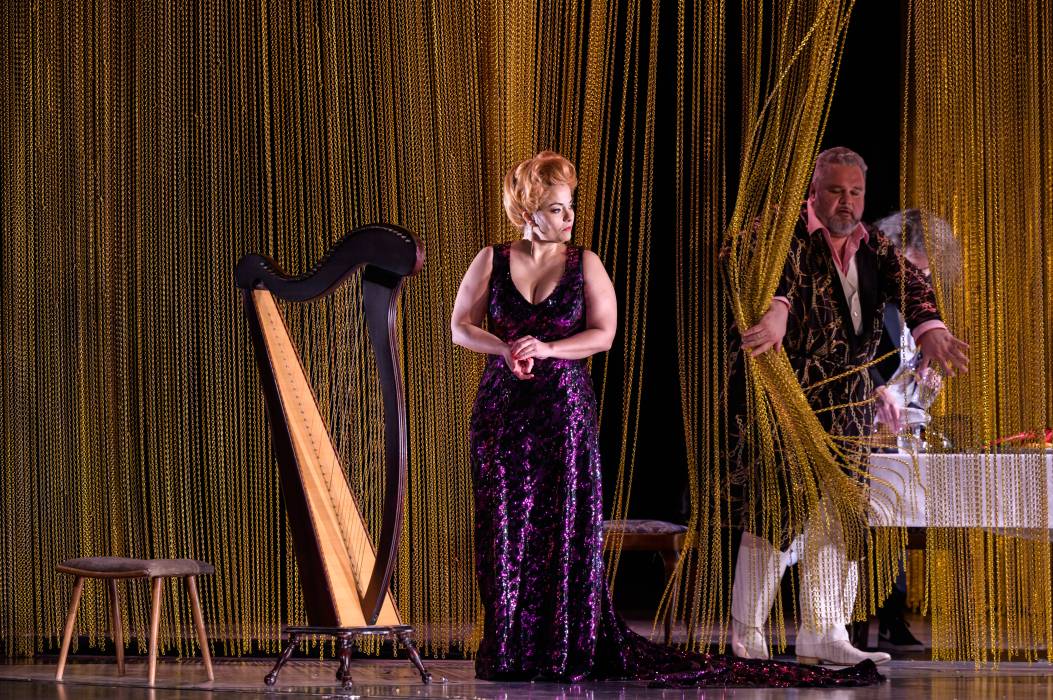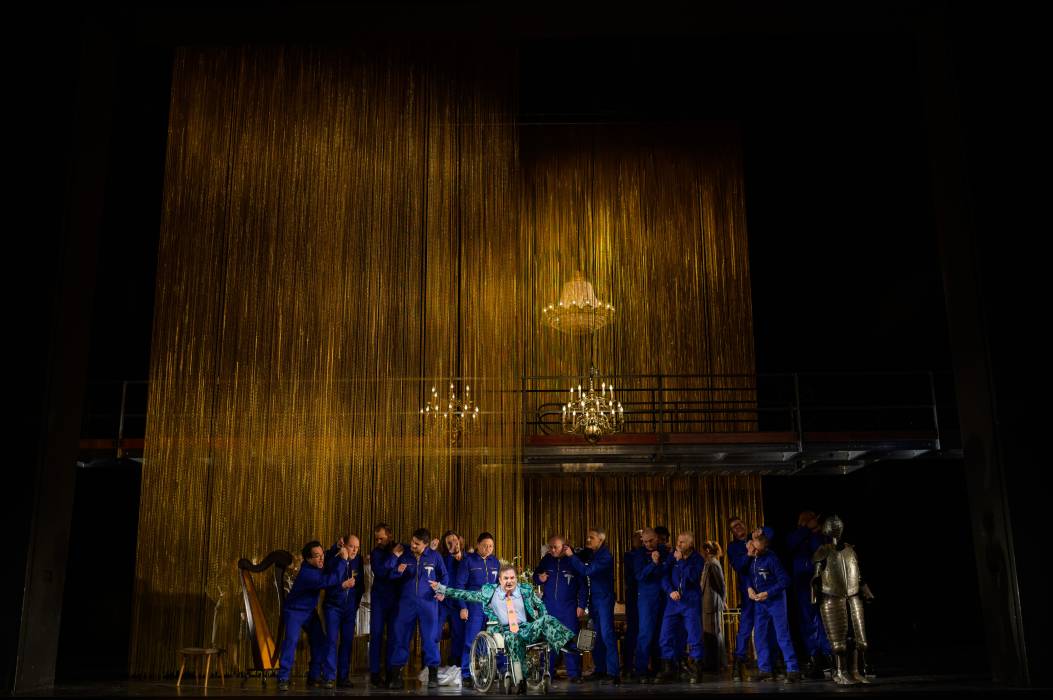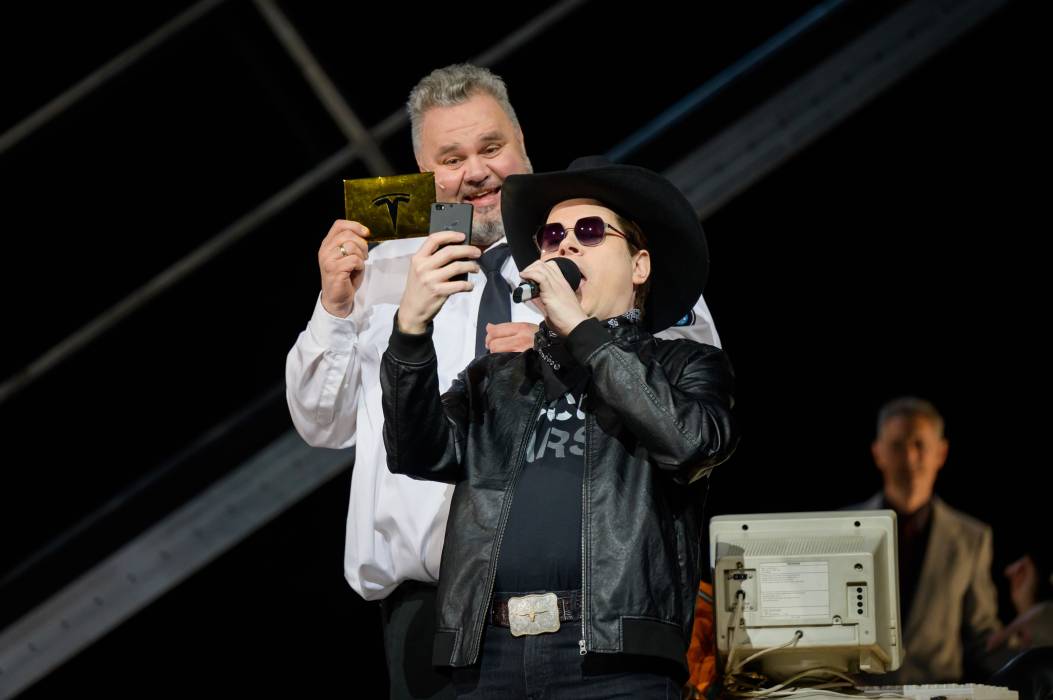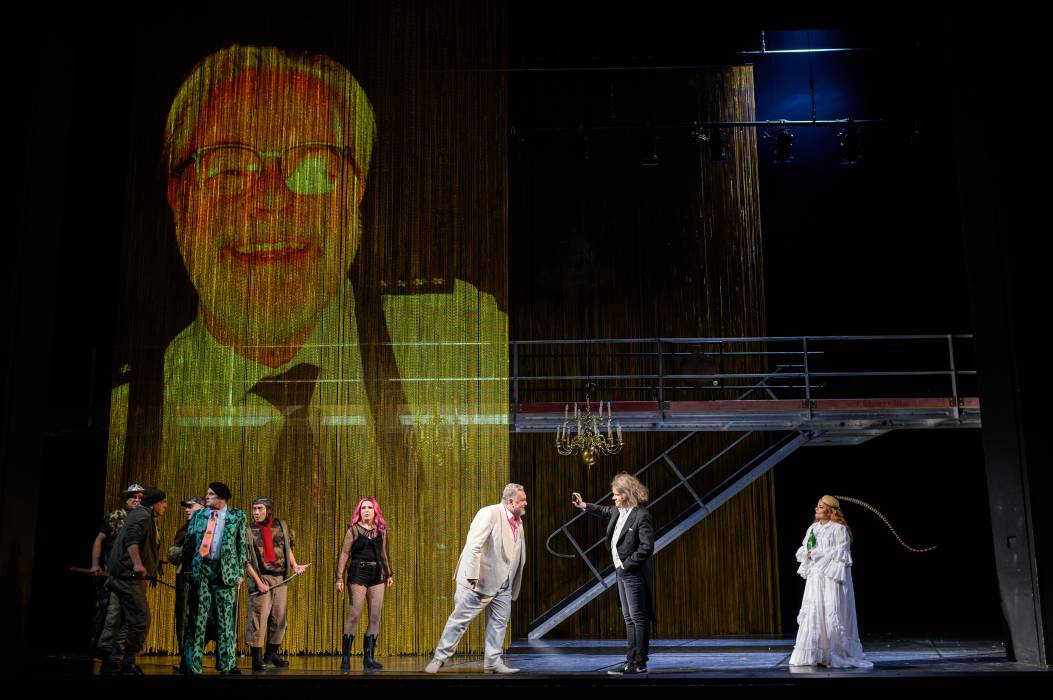A pineapple becomes the offending object: Severin, a homeless man living on the shore of Silver Lake, robs a grocery shop in the nearby small town with four comrades. As he makes his escape with a stolen pineapple, he is shot by the country policeman Olim and barely survives. While examining Severin's few belongings, Olim finds the pineapple in his backpack and has to realise how trivial the cause of the escape and the reason for his shot were. Plagued by a guilty conscience, he decides to make amends for his wrongdoing against Severin. Just then, he wins the lottery and buys a castle, where he transports Severin from the hospital to nurse him back to health in the pleasant surroundings. Despite the many benefits that befall him, Severin becomes increasingly unapologetic about investigating and punishing the person who shot him. When the aristocratic Frau von Luber, with the help of her niece Fennimore, and a Baron Laur want to bring the building back into their possession – they were the previous owners of the luxury property and are still on site as debt-free but impoverished domestic servants –, Olim's redemption project turns out to be a castle in the air. But as with every fairy tale, everything has an improbably good outcome.
In 1933, despite organised Nazi attempts at disruption, »Der Silbersee« successfully premièred in Leipzig, Magdeburg and Erfurt. Kurt Weill had resumed his working relationship with the then famous playwright Georg Kaiser in 1932 after his significant collaboration with Bertolt Brecht on musical theatre works such as »The Threepenny Opera« (1929) and »Rise and Fall of the City of Mahagonny« (1930). »Kaiser wants to write a musical folk play with me,« Weill informed his publisher and continued: »It is by no means intended to be an opera, but an in-between genre piece.« The production was also described as a drama opera, which refers to the combination of operatic parts, choral pieces and large orchestral apparatus with substantial speech scenes and a simultaneous casting of opera singers and actors as far as possible. This makes Der Silbersee another exciting experiment with the genre of opera and one of its important innovative steps in the 20th century.
»Since I cannot feed all the hungry mouths and am never strong enough to enforce a better world order, I devote myself to one individual.« And so Olim decides that following Severin's crime and his own wrongdoing against him, he will now do him a kindness.
»Der Silbersee« explores the problem of charity within unjust and inequality-based conditions and raises the question of how much the individual can do and how much the community must do to improve the world. In the midst of times of social disruption, Weill and Kaiser create a fairy tale utopia of reconciliation between a delinquent unemployed and homeless man and a scrupulous petty-bourgeois law enforcer, who find a common consciousness of solidarity and a hopeful, albeit legendary, ending – even and especially against the new old rulers. When Weill and Kaiser embarked on this creative scheme, they admittedly did not yet know that at the time of the play's première, people would already be in power whose idea of Volksgemeinschaft was not so much humanistic but rather completely barbaric.
Director and opera director Andrea Moses and her team interpret »Der Silbersee« in times of related social conditions as a tragicomic play about the utopian attempt to reunite a divided society. On the question of mercy in a merciless world, the small-town farce grows into a multi-genre world theatre. What purposes does compassionate charity serve? What does private charity in exploitative circumstances lead to, other than a failure to change conditions? Or is there more at stake than the golden pineapple?
On 21 February 1933, a 'joint declaration' by National Socialist and völkisch national associations and organisations was made against »Der Silbersee«. In early March 1933, the play was cancelled at all three première venues. Kurt Weill's music fell silent for the following twelve years in Germany, whose millennial winter was anything but fairy tale and which could hardly be negotiated with the aid of satirical poetry like Heinrich Heine did with his satirical epic poem »Deutschland. Ein Wintermärchen« (Germany: A Winter's Tale), which inspired the »Silbersee« authors to adopt it as their subtitle.
